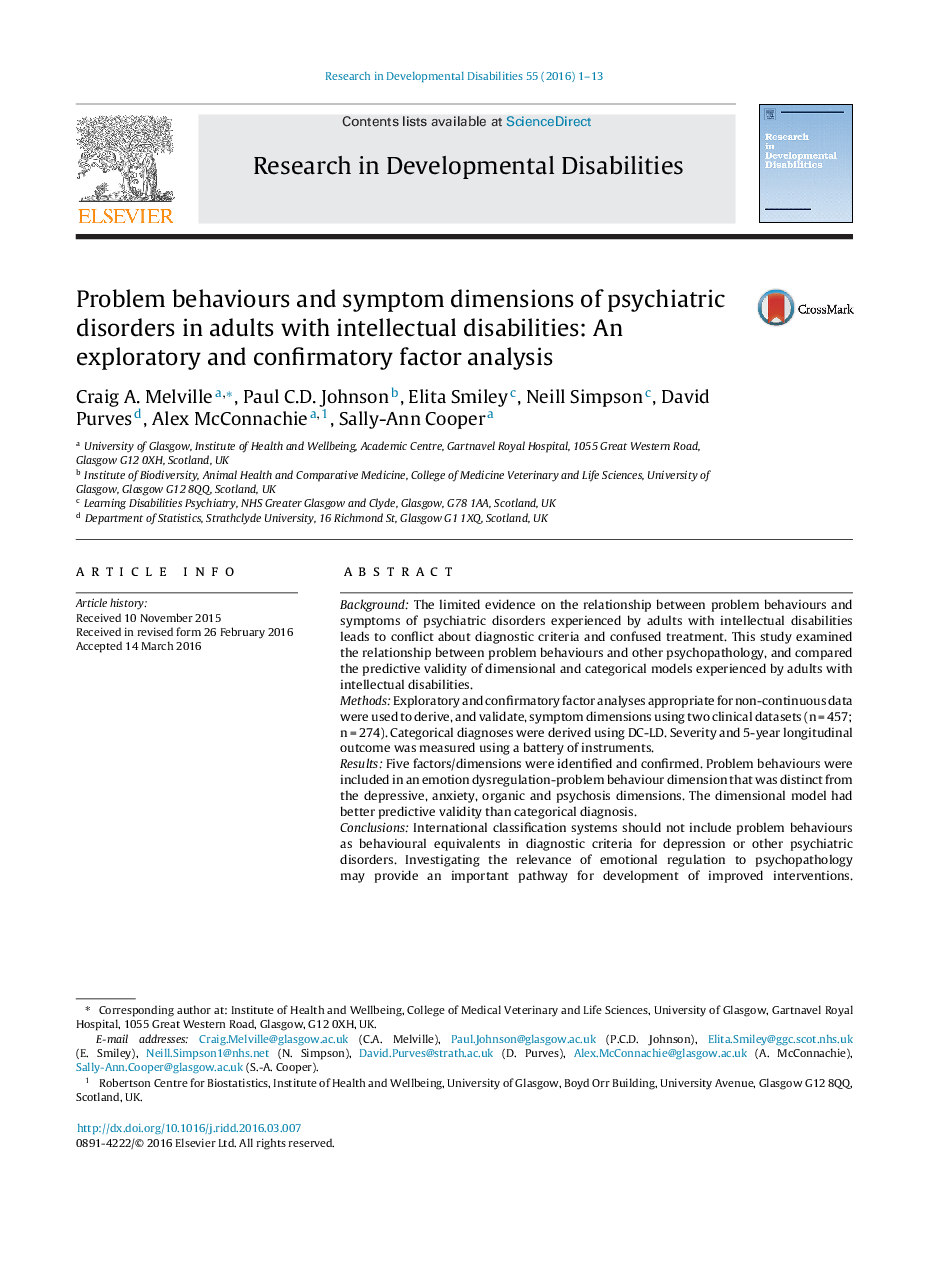| کد مقاله | کد نشریه | سال انتشار | مقاله انگلیسی | نسخه تمام متن |
|---|---|---|---|---|
| 371070 | 621896 | 2016 | 13 صفحه PDF | دانلود رایگان |
• A dimensional model of symptoms of psychiatric disorders was developed with a sample of 457 adults with intellectual disabilities.
• A separate sample of 274 participants was used to validate the dimensional model.
• Problem behaviours were not included in the depressive dimension and should not be considered as symptoms of depression, or any other type of psychiatric disorder.
• The clinical relevance of the dimensional model was demonstrated by the better predictive validity than categorical diagnoses of psychiatric disorder.
• Future classification systems should consider including dimensional measures for use alongside categorical diagnoses.
BackgroundThe limited evidence on the relationship between problem behaviours and symptoms of psychiatric disorders experienced by adults with intellectual disabilities leads to conflict about diagnostic criteria and confused treatment. This study examined the relationship between problem behaviours and other psychopathology, and compared the predictive validity of dimensional and categorical models experienced by adults with intellectual disabilities.MethodsExploratory and confirmatory factor analyses appropriate for non-continuous data were used to derive, and validate, symptom dimensions using two clinical datasets (n = 457; n = 274). Categorical diagnoses were derived using DC-LD. Severity and 5-year longitudinal outcome was measured using a battery of instruments.ResultsFive factors/dimensions were identified and confirmed. Problem behaviours were included in an emotion dysregulation-problem behaviour dimension that was distinct from the depressive, anxiety, organic and psychosis dimensions. The dimensional model had better predictive validity than categorical diagnosis.ConclusionsInternational classification systems should not include problem behaviours as behavioural equivalents in diagnostic criteria for depression or other psychiatric disorders. Investigating the relevance of emotional regulation to psychopathology may provide an important pathway for development of improved interventions.What this paper addsThere is uncertainty whether new onset problem behaviours or a change in longstanding problem behaviours should be considered as symptoms of depression or other types of psychiatric disorders in adults with intellectual disabilities. The validity of previous studies was limited by the use of pre-defined, categorical diagnoses or unreliable statistical methods. This study used robust statistical modelling to examine problem behaviours within a dimensional model of symptoms. We found that problem behaviours were included in an emotional dysregulation dimension and not in the dimension that included symptoms that are typical of depression. The dimensional model of symptoms had greater predictive validity than categorical diagnoses of psychiatric disorders. Our findings suggest that problem behaviours are a final common pathway for emotional distress in adults with intellectual disabilities so clinicians should not use a change in problem behaviours as a diagnostic criterion for depression, or other psychiatric disorders.
Journal: Research in Developmental Disabilities - Volume 55, August 2016, Pages 1–13
